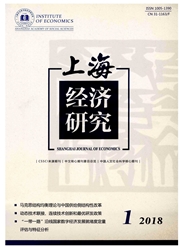

 中文摘要:
中文摘要:
本文基于高维贝叶斯动态因子模型构建了中国金融状况指数。检验结果证实,该指数不仅能有效地反映我国货币市场运行状况,而且它所表现出的较强预测能力有必要将其纳入到制定货币政策的参考指标体系。本文进一步从金融不稳定性的角度出发,利用分层狄利克雷混合过程的无限状态隐含马尔可夫区制(MS-IHMMHDPM)模型,研究了金融状况指数的区制效应。结果表明:金融状况指数在宏观经济运行的不同阶段均表现出明显的平稳性和稳定性特征。结论是,总体上我国货币市场不存在很严重的系统性风险;金融状况的稳定性强弱在宏观经济运行的不同阶段却存在显著差异,当经济运行环境处于金融危机时,我国货币市场的稳定性最弱。
 英文摘要:
英文摘要:
This paper builds financial conditions index for China based on large Bayesian dynamic factor model. The test results suggest that the financial conditions index can not only reflect money market conditions effectively, but also doomed to be included in the system of reference index during drawing up monetary policy because of strong power at forecasting. From the perspective of the situation of financial instability, we further study the regime effects of financial conditions index for China based on infinite hidden Markov switch model combined with hierarchical Dirichlet process mixture model (MS- IHMM-HDPM). The results show that financial conditions index have obvious stationary and stability at different stages of macroeconomic situation. Systemic risk in China's money market is not serious as a whole. However, financial conditions have significant differences among the different stages of macroeconomic situation. The stability of our financial system is weakest in the financial crisis.
 同期刊论文项目
同期刊论文项目
 同项目期刊论文
同项目期刊论文
 期刊信息
期刊信息
